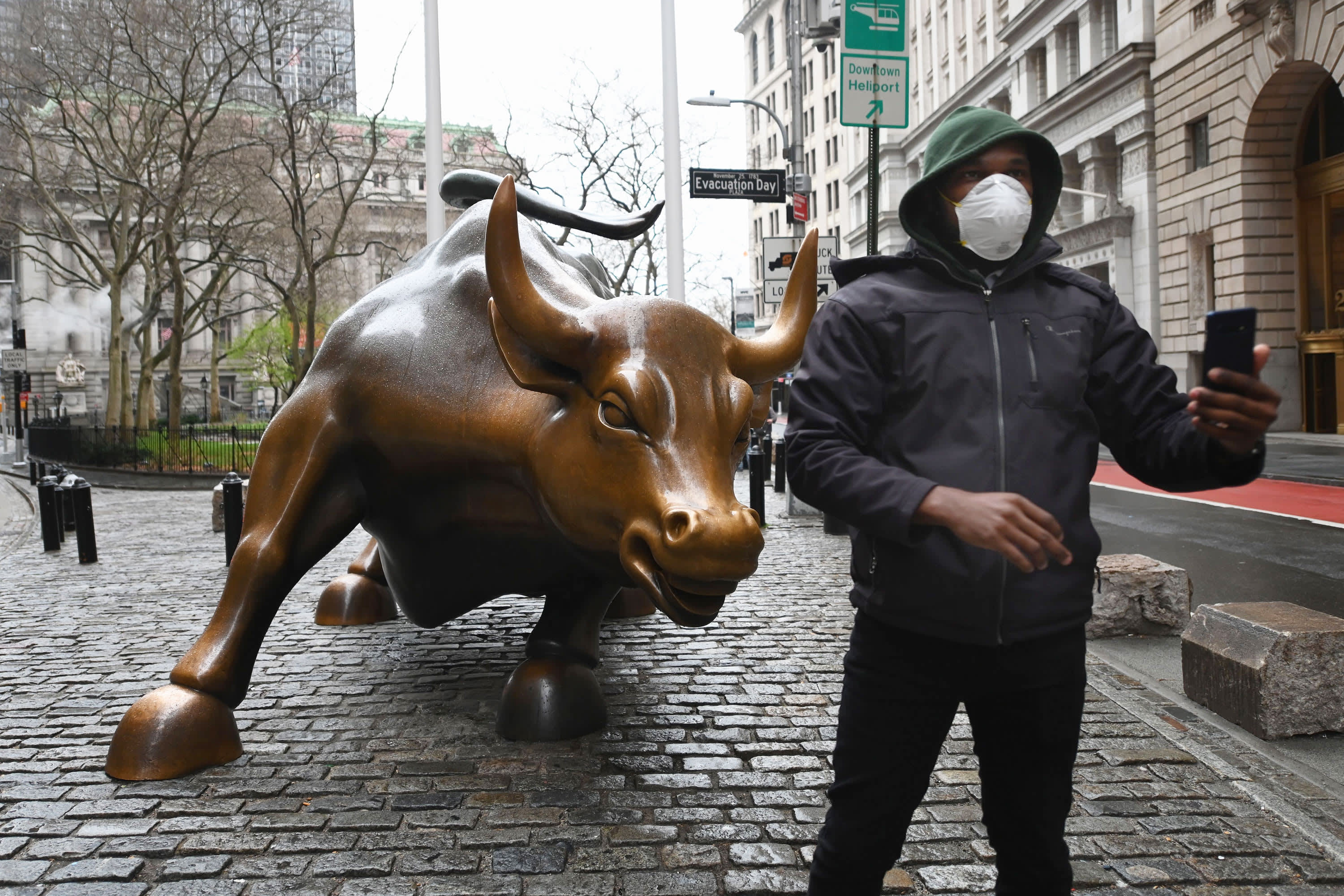This post was originally published on this site

A man wearing a face mask takes a selfie at the Charging Bull statue on March 23, 2020 near the New Stock Exchange in New York City.
Angela Weiss | AFP | Getty Images
Markets have historically “reacted most negatively” to unknown diseases, tending to plunge more during epidemics as compared to natural disasters such as earthquakes and storms, according to Credit Suisse.
Disease outbreaks have led to longer market declines and rebounds that are less sharp as compared with crises that are brought on by natural disasters, according to the investment bank, which studied crises in Asia Pacific going back to the year 2000.
The current coronavirus outbreak has been called a true “black swan” event, meaning an improbable and unforeseen event. It has roiled markets, including those across Asia Pacific, which have declined 10% to 12% from recent highs. Many have fallen into bear territory.
“Historically, the market has reacted most negatively to unknown diseases, given the uncertainty associated with them. This can be seen in the recent reaction to COVID-19, as well as the SARS outbreak in 2003,” Credit Suisse said in a report released earlier this month.
“Diseases that are better understood, such as the seasonal H1N1 flu, make much less of an impact on markets, despite significantly higher infections and total mortality (albeit with lower mortality rates),” Credit Suisse analysts Will Stephens, Elita Lai and Dave Yin wrote.
If more markets move into the risk-off regime, the bank says it prefers stocks with high dividend and low turnover within Asia (excluding Japan), as well as low volatility, value stocks in China A shares.
“Looking at COVID-19 relative to SARS, risky stocks underperformed, while quality outperformed in both the examples. Value stocks were a safe haven in SARS, but less so now,” it said.
Here are some “safe-haven” stocks the bank’s analysts picked out for investors looking to “insulate their portfolios from the additional COVID-19 downside.” These are stocks that Credit Suisse says “align with the characteristics of previous crisis-outperformers in the region.” Declines calculated from year-to-date high to March 23 close.
Japan
Australia
Other Asia markets
- India-listed HDFC Bank: 39.6% decline
- Malaysia-listed Maybank: 18.6% decline
- China-listed China Merchants Bank: 23.5% decline
- China-listed pharmaceutical company Jiangsu Hengrui Medicine: 11.5% decline
- Hong Kong-listed power company Power Assets: 28.5% decline



